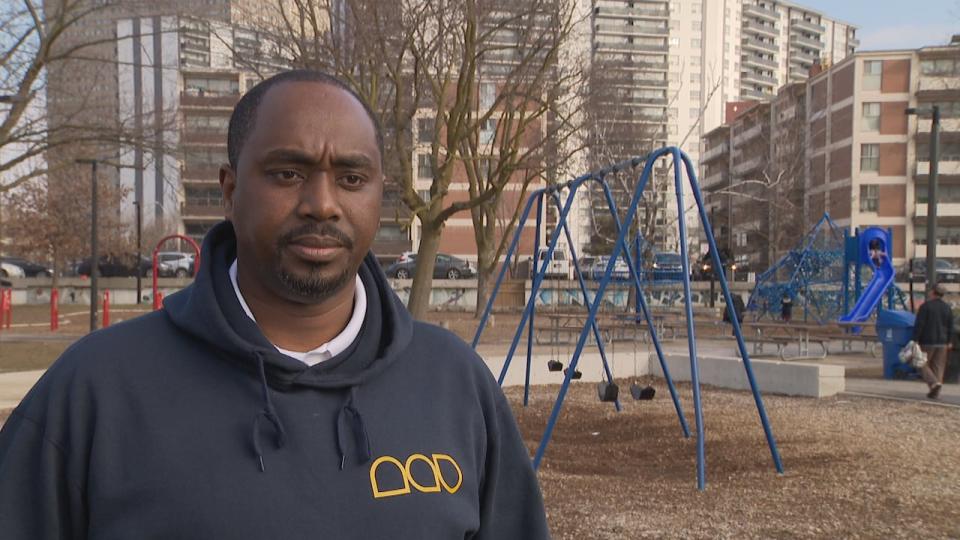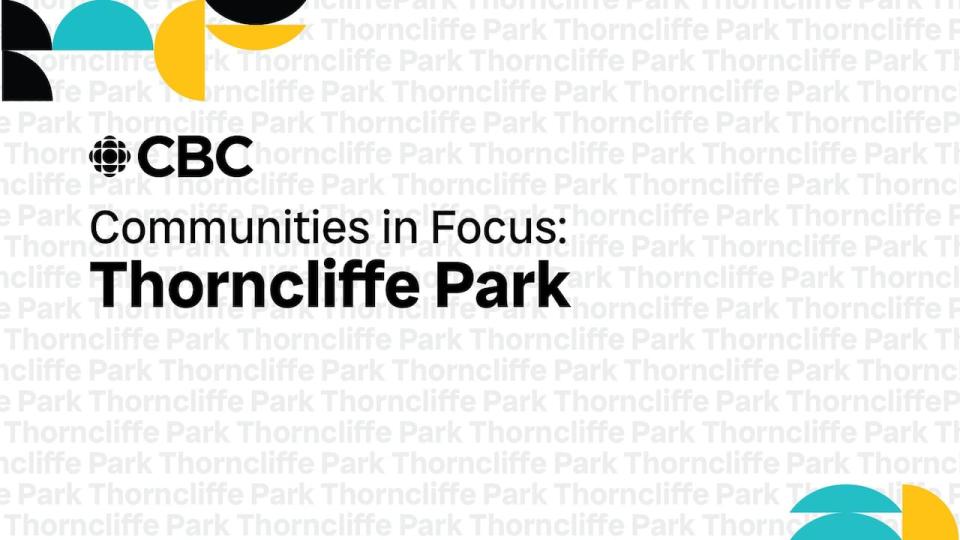Thorncliffe Park residents are educated, but earning low incomes. Could new legislation help?

Walking into any Toronto hospital reminds Shakhlo Sharipova of the career she left behind.
"Just the smell of the hospital brings those memories back. I feel this is my mission, this is where I belong really," she said.
It's been 15 years since Sharipova entered a hospital as a working physician. She emigrated to Thorncliffe Park from Tajikistan in 2009. There, she had spent 12 years working as an ophthalmologist, specializing in glaucoma.
After arriving in Toronto, her ability to continue that career was thrown off course.
Sharipova paid for ESL classes to ensure her English was perfect and other classes to help her prepare for Canada's qualifying exams as an internationally-trained doctor. She would also need to complete a four-year medical residency — regardless of the number of years she had practiced in Tajikistan — of which there are limited spots for foreign-born physicians.
But after three years and more than $10,000, she said the lengthy licensing process proved too trying while providing for her family, including her son, who requires round-the-clock care for severe autism.
Newcomers face significant barriers to being hired in the fields they are trained in due to Canadian experience requirements. Statistics Canada has identified what it calls a recent trend in over-education by immigration status, noting that in 2016, the most recent data available, half of all newcomers had at least a bachelor's degree — but they still made up the majority of employment growth in low-skilled or medium-skilled jobs.
While the problem is Canadawide, it's of particular concern in the Thorncliffe Park neighbourhood — an example of how new immigrants are being let down by bureaucracy, residents and experts who study the issue told CBC Toronto.
Ontario is in the process of passing legislation that seeks to ban Canadian experience requirements in job postings, but experts say further supports for newcomers are needed.
"I don't know anyone... working the same professions they were back home. They always take lower positions," said Sharipova of her neighbours in Thorncliffe, an area known as a landing hub for new immigrants and refugees.
According to the 2021 census, 49 per cent of residents in Thorncliffe had completed some form of post-secondary education. But 25.5 per cent of Thorncliffe's population is low-income, above the Toronto average of 13.2 per cent.
International degrees need to be valued: professor
Usha George, a professor of social work specializing in immigration policy at Toronto Metropolitan University, said she welcomes the province's new legislation, announced last November, to combat the issue of under-employed immigrants. Bill 149 is currently at the committee stage at the Ontario Legislature.
The province is facing a labour shortage with 200,000 jobs going unfilled, a spokesperson for the Ministry of Labour, Immigration, Training and Skills Development told CBC Toronto in a statement. The spokesperson said there's a need to fill construction jobs specifically.
If the legislation is passed, the ministry says prospective employees with the skills to perform a job will not be screened out if they obtained their experience outside of Canada.
CBC Toronto is spending time in the Thorncliffe Park neighbourhood as part of our Communities in Focus initiative. Our goal is to hear your stories about this unique neighbourhood and share them with the rest of the city.
To stay up to date and engage with our latest stories about Thorncliffe and Flemingdon Park, subscribe to our Thorncliffe Park WhatsApp Channel.
George said that's only one small part of how the Canadian experience requirement unfolds in certain fields. She says the main problem is the specific Canadian experience needs embedded into the accreditation process for multiple professional bodies, like doctors or pharmacists.
"I'm not arguing... to lower the requirements. But the basic issue is about recognizing the education that they have and giving it the right value," she said, adding that there have also been concerns that minimum thresholds for English language tests keep changing, creating confusion.
Sharipova said she felt her qualifications weren't taken seriously in Ontario.
"I spent six years working on those diplomas," she said. "What's wrong with my education?"
Some changes are being made in a few fields that require licences. Ontario's engineers regulator dropped the Canadian work experience requirement in 2023, which the ministry estimates has led to about 7,000 positions being filled provincewide.
Last month, the College of Physicians and Surgeons of Ontario introduced Practice Ready Ontario, a pilot program to fast-track internationally trained doctors that the province says will help some of these doctors be licensed faster.
Mentorship needed
Many new immigrants end up taking a lower level jobs because the process is too arduous to have their credentials recognized and they need to earn an income, George said. She said more mentorship programming should be in place to help people navigate the system.
That kind of mentorship is taking place in Thorncliffe between community members who support one another and who provide newcomers with resources when they first arrive, Sharapova said.

Henry Muriithi, a program coordinator with the Toronto Community Benefits Network, says he encourages employers to give newcomers a chance to enter the Canadian job market. (Michael Charles Cole/CBC)
The Toronto Community Benefits Network, a work advocacy organization for newcomers, also helps new immigrants find apprenticeships or internships in their fields so they can get Canadian work experience on their resumes.
Program coordinator Henry Muriithi said he encourages employers to take a chance on newcomers even if they haven't worked in Canada before.
"You'll find they will prove themselves," he said. "What they miss is that entry point into the job market."
Sharipova said she wants to see more compassion for new immigrants looking for work.
"Be more respectful, more empathetic. Just bringing us to the table would be helpful," she said.

(CBC)

